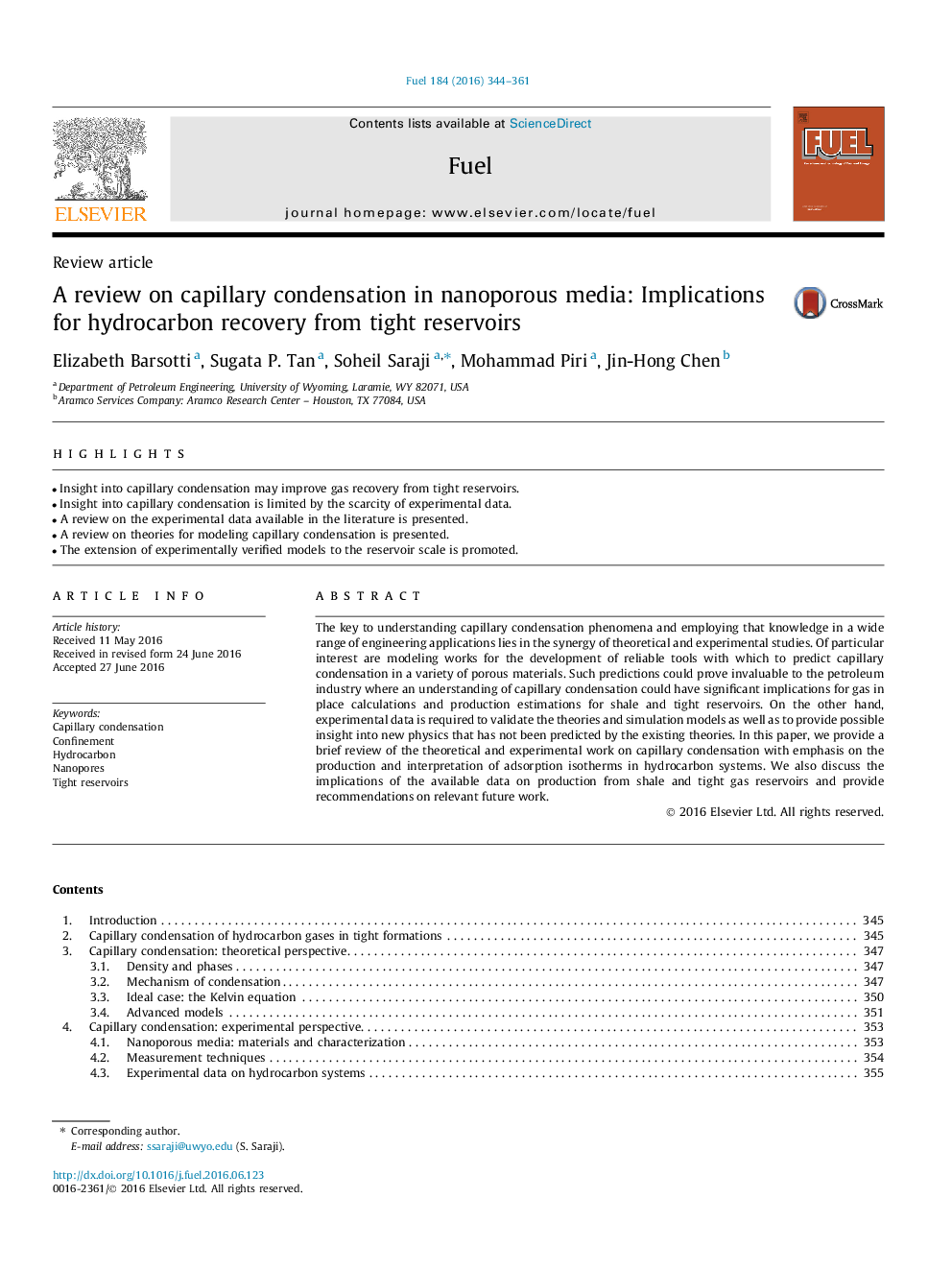| Article ID | Journal | Published Year | Pages | File Type |
|---|---|---|---|---|
| 6632925 | Fuel | 2016 | 18 Pages |
Abstract
The key to understanding capillary condensation phenomena and employing that knowledge in a wide range of engineering applications lies in the synergy of theoretical and experimental studies. Of particular interest are modeling works for the development of reliable tools with which to predict capillary condensation in a variety of porous materials. Such predictions could prove invaluable to the petroleum industry where an understanding of capillary condensation could have significant implications for gas in place calculations and production estimations for shale and tight reservoirs. On the other hand, experimental data is required to validate the theories and simulation models as well as to provide possible insight into new physics that has not been predicted by the existing theories. In this paper, we provide a brief review of the theoretical and experimental work on capillary condensation with emphasis on the production and interpretation of adsorption isotherms in hydrocarbon systems. We also discuss the implications of the available data on production from shale and tight gas reservoirs and provide recommendations on relevant future work.
Related Topics
Physical Sciences and Engineering
Chemical Engineering
Chemical Engineering (General)
Authors
Elizabeth Barsotti, Sugata P. Tan, Soheil Saraji, Mohammad Piri, Jin-Hong Chen,
